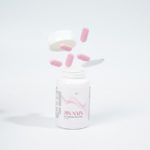The cost of professional therapy can be quite high, so not everyone can afford it. As a result, many women have opted for more economical methods such as applying skin-whitening creams or taking skin-whitening pills. But do these methods really work, and which one is better?
Are skin-whitening creams effective?
Skin-whitening creams have long been available on the market and are popular among women. Whitening or brightening products contain ingredients that inhibit the production or transport of melanin to the skin’s surface, such as:
– Vitamin C, a well-known antioxidant that reduces melanin production in skin cells.
– Glycolic acid, which acts as a chemical exfoliant, brightening the skin by removing dead skin cells.
– Retinoids, derived from vitamin A, can also be used to lighten dark spots. They work by accelerating the turnover of surface skin cells.
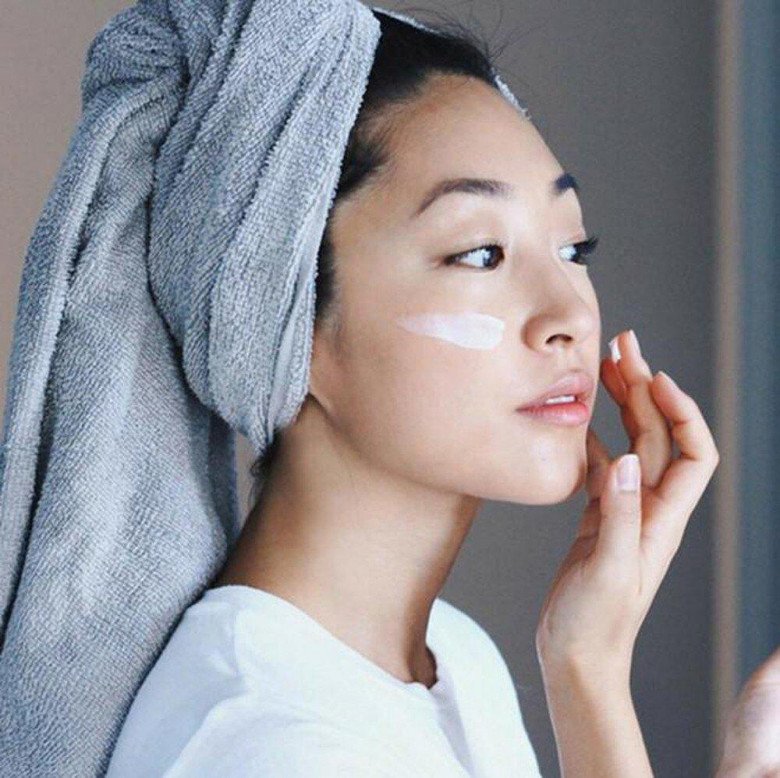
Skin-whitening creams can be effective with long-term use. (Illustrative image)
These creams are typically used to treat localized areas of hyperpigmentation, such as age spots or acne scars, helping to restore the skin’s natural color. Sometimes, they are also used to brighten the overall skin tone. However, this process is gradual and corresponds to the body’s natural skin regeneration cycle.
It’s important to note that skin-brightening creams may have some side effects. As many whitening creams contain corticosteroids, steroid-induced acne may occur. It can also lead to skin damage and leave open sores and scars.
Some milder side effects have also been reported, including dermatitis and skin irritation. Additionally, in recent years, there has been a concern about the presence of mercury in some skin-whitening creams. Mercury is a heavy metal that can be toxic even in small amounts. The FDA has restricted the amount of mercury in cosmetic products to no more than one part per million (ppm).
Distinguishing between skin-whitening and skin-bleaching creams
It’s crucial for women to differentiate between skin-whitening and skin-bleaching creams. Many women, when looking for products to lighten their skin, simply purchase any product that claims to have skin-lightening properties. Products that promise faster results are often more popular. However, these are actually skin-bleaching products, which are entirely different from skin-whitening ones.
Skin-bleaching creams typically use strong chemicals with peeling properties, such as hydroquinone, hydroxy peroxyd, corticosteroids, or heavy metals, to quickly remove pigmented cells. They also exfoliate the stratum corneum and alter skin color. As a result, they can alter cells, cause skin atrophy, and lead to permanent depigmentation or even skin cancer. Some of these “mixed” creams may contain unknown ingredients, making them even more dangerous. Therefore, it’s best to avoid these types of skin-bleaching products.
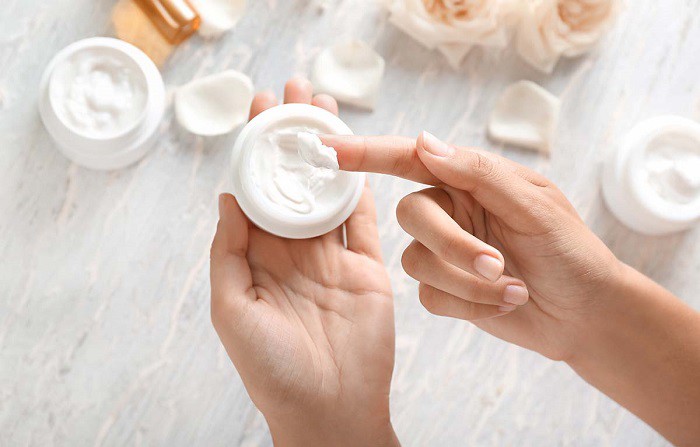
It’s best to steer clear of rapid skin-bleaching products as they may contain harmful ingredients. (Illustrative image)
Oral Glutathione for Skin Whitening
Recently, in addition to skin-whitening creams, oral supplements that are believed to whiten the skin from within have gained popularity. Among them, glutathione pills are one of the most favored choices. On social media, numerous advertisements for glutathione whitening pills can be found, with claims such as “see results in just 7 days.”

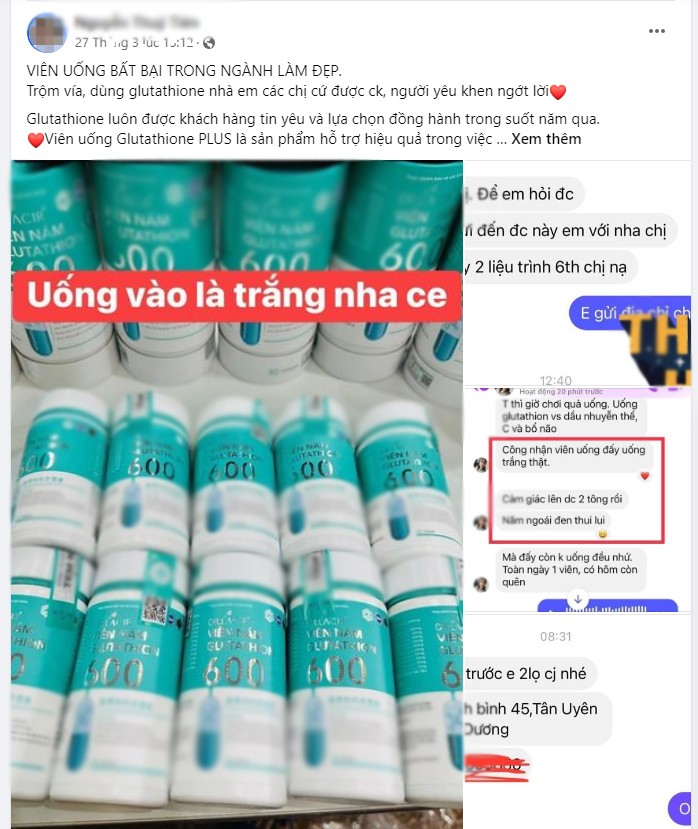
There are numerous advertisements promoting the skin-whitening effects of glutathione pills.
Glutathione is one of the most potent antioxidants in the body, and it has gained attention for its potential in skin whitening treatments. There has been extensive debate about the effectiveness of glutathione in skin whitening.
According to a study, the use of glutathione for four weeks in a small number of participants yielded positive results. There are several reasons why oral glutathione may contribute to skin whitening. Specifically, glutathione binds to tyrosinase or inhibits tyrosine activation, which is responsible for increased melanin production.
Associate Professor Dr. Tran Hong Con (former lecturer at the University of Natural Sciences, Vietnam National University, Hanoi) also stated that glutathione is a versatile chemical, commonly used in cosmetics. It is widely utilized in skincare products due to its ability to detoxify metals, counteract melanin, and eliminate heavy metals. When applied topically, glutathione protects the skin from oxidation, metal toxins, and the detrimental effects of UV rays. Additionally, consuming glutathione orally increases its concentration in the blood, boosting the body’s antioxidant capacity.
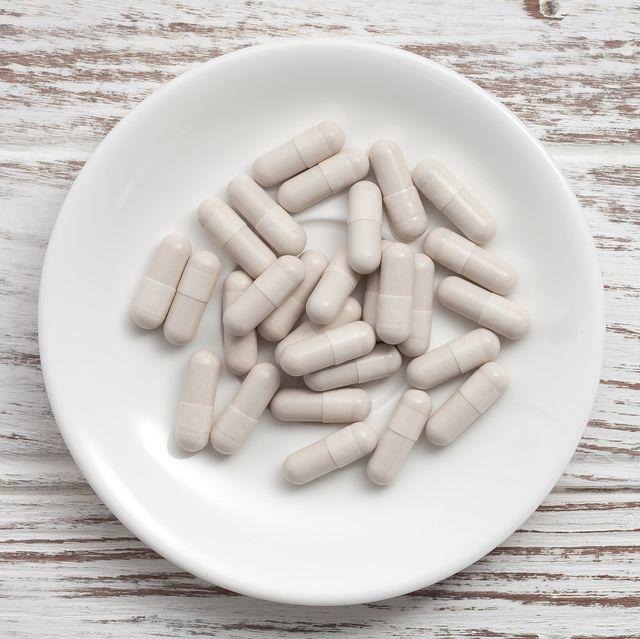
Glutathione supplements are safe and effective for the skin, but it’s recommended to purchase products from reliable sources and consult experts before use.
There are numerous glutathione supplements available, but it’s essential to choose the right one to achieve optimal results. Glutathione supplements containing compounds such as Liposomal Glutathione, acetyl glutathione, and L-glutathione not only improve the skin but also enhance overall health and skin quality.
While the skin-whitening treatment with glutathione has shown promising results, it’s important to remember that you won’t see changes overnight. Currently, there is no scientific research indicating that glutathione is harmful to human health.
Which method is more effective and safer for skin whitening?
In terms of effectiveness, both products can help brighten the skin. However, glutathione is considered a safer option.
Nowadays, there is a wide range of skin-whitening creams and pills on the market. Therefore, when purchasing any skin-whitening product, it’s crucial to select reputable and high-quality options with clear origins. For added safety, it’s recommended to consult a dermatologist for personalized advice before starting any skin-whitening regimen.
The Ultimate Guide to 2023’s Hottest Skincare Trends
Skincare trends are always a hot topic, and we’re here to give you an insight into the predictions for 2023. Get ready to dive into the world of skincare and discover the latest innovations and routines that will take your skin to the next level. From groundbreaking ingredients to holistic approaches, we’ll explore the trends that are set to transform your skincare game. So, without further ado, let’s unveil the skincare trends that will have your skin glowing and radiant all year long.
Glutathione for Summer Skin Radiance’>5 Ways to Boost Glutathione for Summer Skin Radiance
The Secret to Flawless Skin: Unveiling a Revolutionary Approach to Achieving a Radiant Complexion in Just 7 Days!
The traditional methods of skin care are often ineffective and sometimes harmful. Surface-level treatments, such as cosmetic creams and lotions, might provide temporary relief, but they don’t address the deeper issues. Spa treatments, though effective, can be costly and time-consuming. And let’s not forget the disappointment of skin-whitening pills that often fail to deliver on their promises. So, what’s the solution for skin concerns like dark spots, acne, and aging? How can we address these issues at their root and maintain long-lasting beauty without breaking the bank?




























